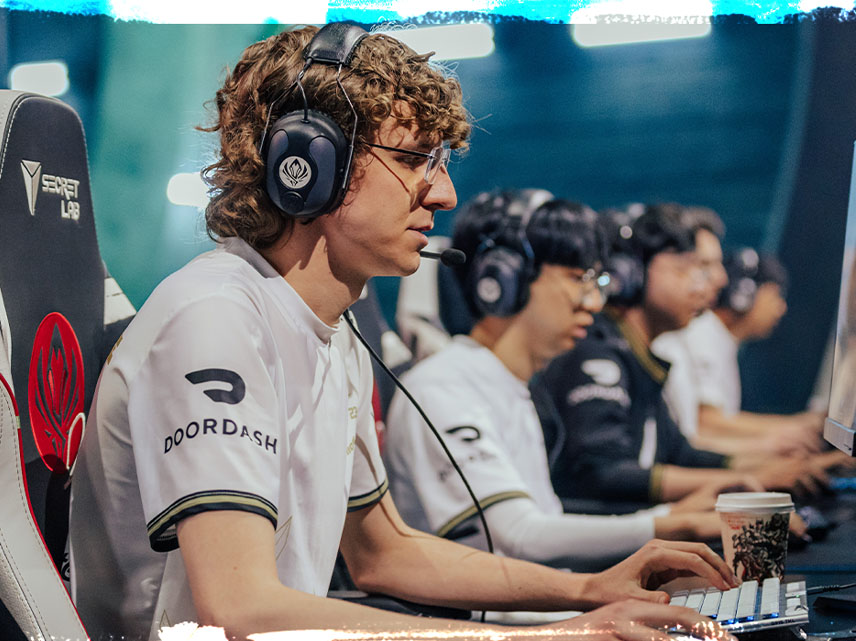Why Esports Should Be Considered a Real Sport
In recent years, esports has exploded into a global phenomenon, attracting millions of players, fans, and investors.

In recent years, esports has exploded into a global phenomenon, attracting millions of players, fans, and investors. Competitive gaming tournaments fill stadiums, offer multi-million-dollar prize pools, and command massive online audiences rivaling traditional sports events. Despite this growth, a debate persists: Should esports be considered a real sport?
The answer is a resounding yes, and here’s why.
1. Esports Requires Skill and Training
At its core, sport is about skill, strategy, and physical or mental prowess. Esports athletes, or pro gamers, train intensely for hours daily — honing reflexes, perfecting tactics, and analyzing gameplay to outperform opponents.
- Reflexes and Hand-Eye Coordination: High-level gaming demands lightning-fast reactions and precise control.
- Strategic Thinking: Players must make split-second decisions, coordinate with teammates, and adapt to evolving gameplay.
- Practice Regimens: Pro gamers often train 6–10 hours a day, reviewing replays, studying competitors, and working on weaknesses.
This dedication and skill parallel what traditional athletes commit to their craft. Like footballers or basketball players mastering plays and physical techniques, esports competitors refine their skills to excel.
2. Esports Has Structured Competition
Traditional sports thrive on structured leagues, tournaments, and rankings — esports is no different. The esports ecosystem features:
- Professional Leagues: Such as the League of Legends Championship Series (LCS), Overwatch League (OWL), and Call of Duty League.
- International Tournaments: Events like The International (Dota 2), Fortnite World Cup, and EVO Championship Series gather the best from around the world.
- Clear Rules and Standards: Games have official rule sets, referees, and anti-cheat measures ensuring fair play.
This organized competitive framework mirrors established sports, providing legitimacy and consistency.
3. Physical and Mental Demands Are Real
Although esports doesn’t require running or jumping, it involves unique physical and mental challenges:
- Physical: Gaming requires sustained focus, rapid finger movements, and fine motor skills. Many pro players incorporate physical fitness routines to improve stamina and prevent injuries like carpal tunnel syndrome.
- Mental: Esports athletes face immense pressure during matches, requiring concentration, quick decision-making, and teamwork.
Sports psychology and coaching have become integral in esports, helping players manage stress and improve performance — much like in traditional sports.
4. Massive Audiences and Fan Engagement
Sports are as much about entertainment and community as competition. Esports boasts millions of passionate fans worldwide:
- Streaming Platforms: Twitch, YouTube Gaming, and other platforms broadcast live esports events, drawing hundreds of thousands of concurrent viewers.
- Social Media: Fans engage deeply with players, teams, and tournaments online, creating vibrant communities.
- Stadium Events: Packed arenas for major tournaments showcase the growing popularity and fan engagement.
The level of enthusiasm and fan culture around esports rivals traditional sports leagues, emphasizing its status as a mainstream competitive activity.
5. Esports Promotes Teamwork and Sportsmanship
Many esports titles require tight teamwork and coordination, similar to team sports like soccer or basketball. Successful teams depend on:
- Communication: Real-time strategy discussions and coordination.
- Trust and Roles: Each player performs specific roles contributing to the team’s success.
- Sportsmanship: Respecting opponents, playing fair, and showing professionalism.
These core sporting values are actively cultivated in esports communities and competitions.
6. Economic and Career Opportunities
Esports supports a vast industry, providing careers and economic impact comparable to traditional sports:
- Professional Players: Many earn substantial salaries and sponsorship deals.
- Coaches, Analysts, and Managers: Behind-the-scenes roles essential to team success.
- Event Organizers and Broadcasters: Running tournaments and creating content.
- Merchandising and Sponsorships: Significant revenue streams fuel growth.
This economic ecosystem proves esports is more than just a game — it’s a professional sport with a sustainable career path.
7. Recognition by Global Institutions
Esports is gaining acceptance from major sports organizations and governments:
- Asian Games: Esports was included as a demonstration sport in the 2018 Asian Games and an official medal event in 2022.
- Olympics: The International Olympic Committee (IOC) acknowledges esports as a sporting activity, exploring ways to integrate it responsibly.
- National Federations: Countries like the US, South Korea, and Germany have established official esports federations and governing bodies.
This institutional recognition reflects the growing legitimacy and acceptance of esports on the global stage.
8. Inclusivity and Accessibility
Esports breaks barriers found in traditional sports:
- Physical Limitations: Individuals with disabilities or physical challenges can compete at the highest levels.
- Global Reach: Anyone with an internet connection can practice, compete, and join communities, regardless of location or resources.
- Diverse Participation: Esports welcomes players of all genders, ages, and backgrounds.
This inclusivity aligns with modern sporting values of equal opportunity and community building.
9. Continuous Evolution and Innovation
Esports is uniquely dynamic. Games evolve with patches, new titles emerge, and strategies continuously develop. This adaptability fosters:
- Constant Skill Development: Players must stay current and learn new mechanics.
- Innovation in Coaching and Training: Teams use analytics, biomechanics, and technology to gain an edge.
- Fan Engagement: New content and formats keep audiences excited.
This fast-paced evolution challenges players and fans alike, making esports a cutting-edge sport for the digital age.
10. Bridging Traditional Sports and Modern Technology
Many traditional sports organizations are investing in esports, recognizing it as a natural extension of competitive sports in the digital era.
- Football clubs like PSG and Manchester City own esports teams.
- NBA teams participate in NBA 2K League.
- The fusion of sports and esports creates new opportunities for fans and athletes.
This convergence validates esports as part of the broader sports landscape.
Esports meets every major criterion that defines a sport — skill, competition, physical and mental demands, fan engagement, and professional structure. It offers unique opportunities for inclusion and innovation that traditional sports sometimes lack.As society continues embracing digital culture, esports will only grow in relevance and respect. Recognizing it as a real sport honors the dedication, talent, and community that make it a powerful force worldwide.So next time you hear the question, “Is esports a real sport?” confidently say yes — because it truly is.
Recent Blogs
-

Best Neck and Shoulder Massagers for At-Home Pain Relief
-

Best Collagen Supplements for Women Over 40: How to Elevate Your Choice
-

Best Natural Aphrodisiac Supplements for Boosting Libido and Performance
-

Best Flavored Sunflower Seeds to Satisfy Every Craving
-

Best Brain Health Supplements for Focus, Memory, and Energy